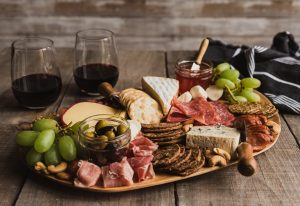 Those who enjoy wine and cheese as part of their diet may want to note new research showing that it may reduce cognitive decline. Studies on diet typically show a direct impact on health in a negative way, but this new research published in the Journal of Alzheimer’s Disease has found a positive connection with wine and cheese.
Those who enjoy wine and cheese as part of their diet may want to note new research showing that it may reduce cognitive decline. Studies on diet typically show a direct impact on health in a negative way, but this new research published in the Journal of Alzheimer’s Disease has found a positive connection with wine and cheese.
The study is the first of its kind as a large-scale analysis that connects specific foods to later-in-life cognitive acuity. Researchers analyzed data collected from 1,787 adults from 46 to 77 years of age who all resided in the United Kingdom. All information collected was from the UK Biobank, a large-scale biomedical database and research resource containing in-depth genetic and health information from half a million UK participants.
Advertisement
Each participant completed a Fluid Intelligence Test (FIT) as part of a questionnaire at baseline, and then two follow-up assessments spaced three years apart. The FIT analysis provides an in-time snapshot of an individual’s ability to “think on the fly.” They were also required to answer questions about their food and alcohol consumption at all baseline and follow-ups.
The food questionnaire asked about intake of fresh fruit, dried fruit, raw vegetables and salad, cooked vegetables, oily fish, lean fish, processed meat, poultry, beef, lamb, pork, cheese, bread, cereal, tea and coffee, beer and cider, red wine, white wine and champaign, and liquor.
Protective Foods
The study found that cheese was shown to be the most protective food against age-related cognitive problems, even late into life. The daily consumption of alcohol, particularly red wine, was related to improvements in cognitive function. Weekly consumption of lamb was shown to improve cognitive function, and excessive salt consumption in those already at risk for Alzheimer’s disease can be detrimental.
“I was pleasantly surprised that our results suggest that responsibly eating cheese and drinking red wine daily are not just good for helping us cope with our current COVID-19 pandemic, but perhaps also dealing with an increasingly complex world that never seems to slow down,” Auriel Willette, principal investigator, said. “While we took into account whether this was just due to what well-off people eat and drink, randomized clinical trials are needed to determine if making easy changes in our diet could help our brains in significant ways.”
This study found that some individuals seem to be more protected from the effects of Alzheimer’s while others seem to be at greater risk depending on genetic factors. As more research becomes available, it is being shown that the right food choices can prevent the disease and cognitive decline altogether. Researchers suggest that knowing what, and how to eat could give a better understanding of Alzheimer’s and offer possible treatment options.
